
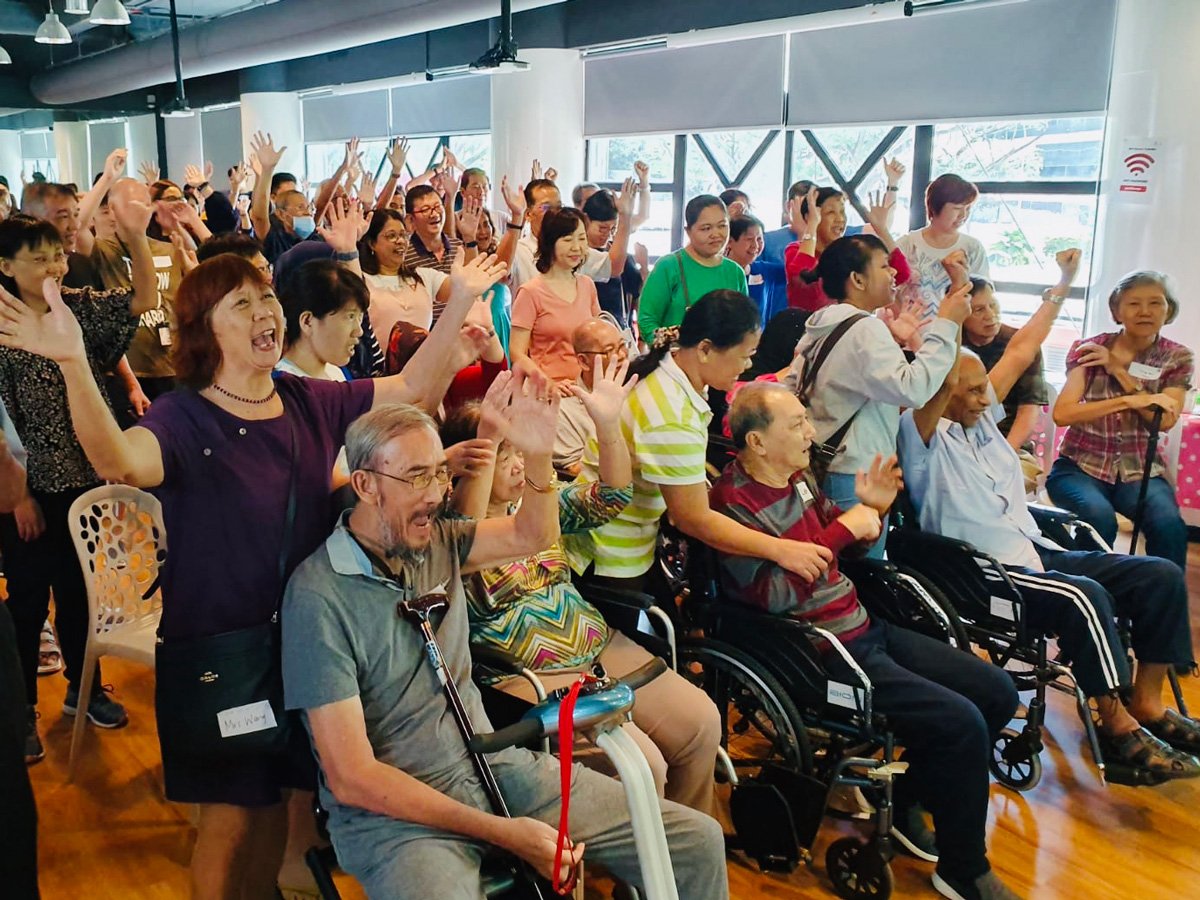
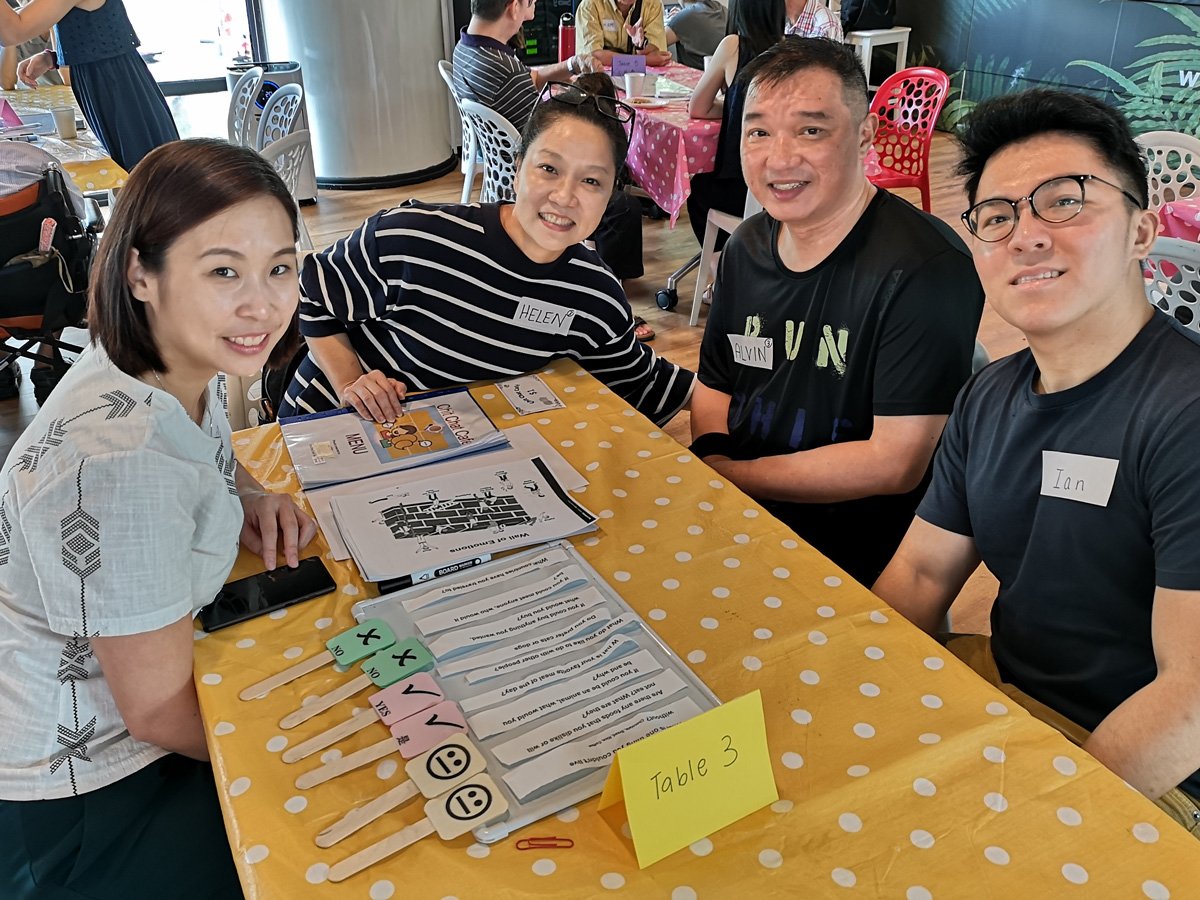

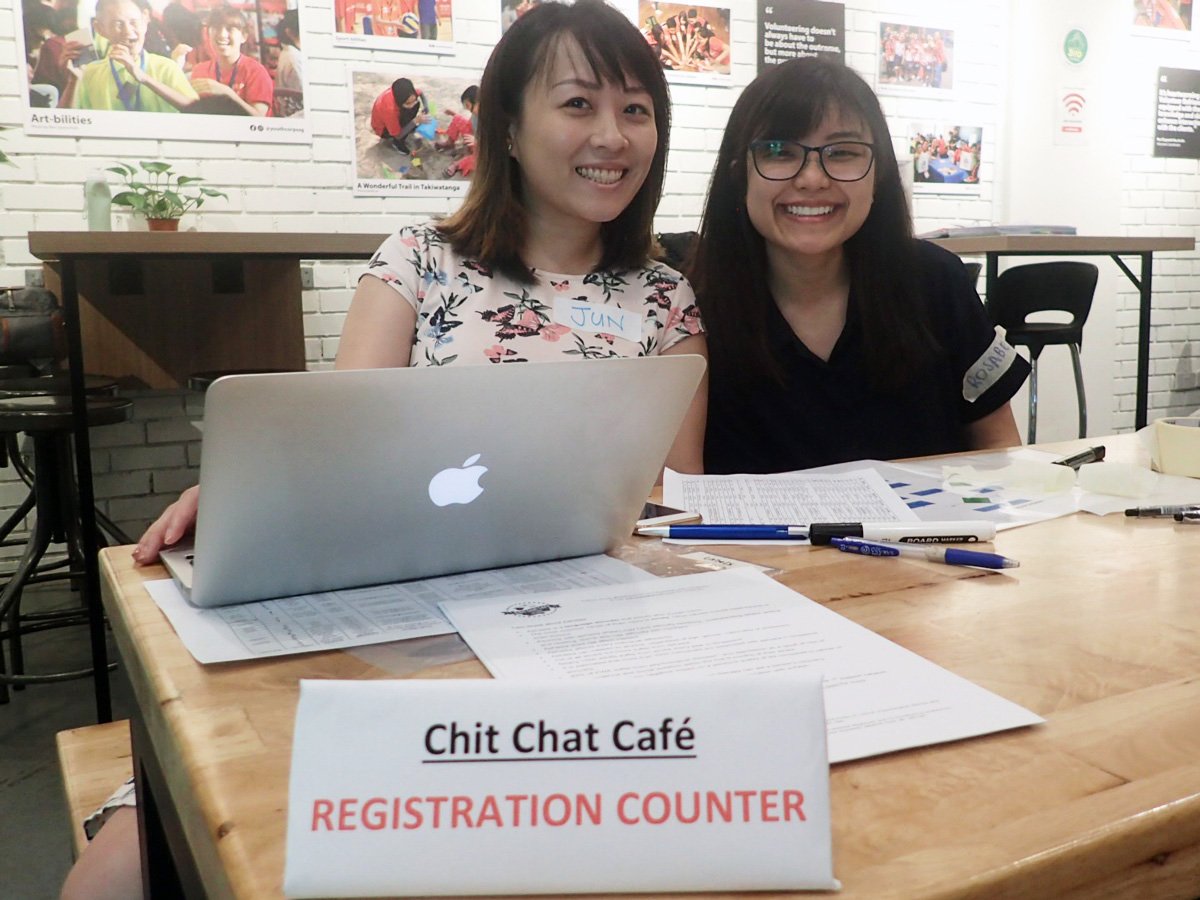
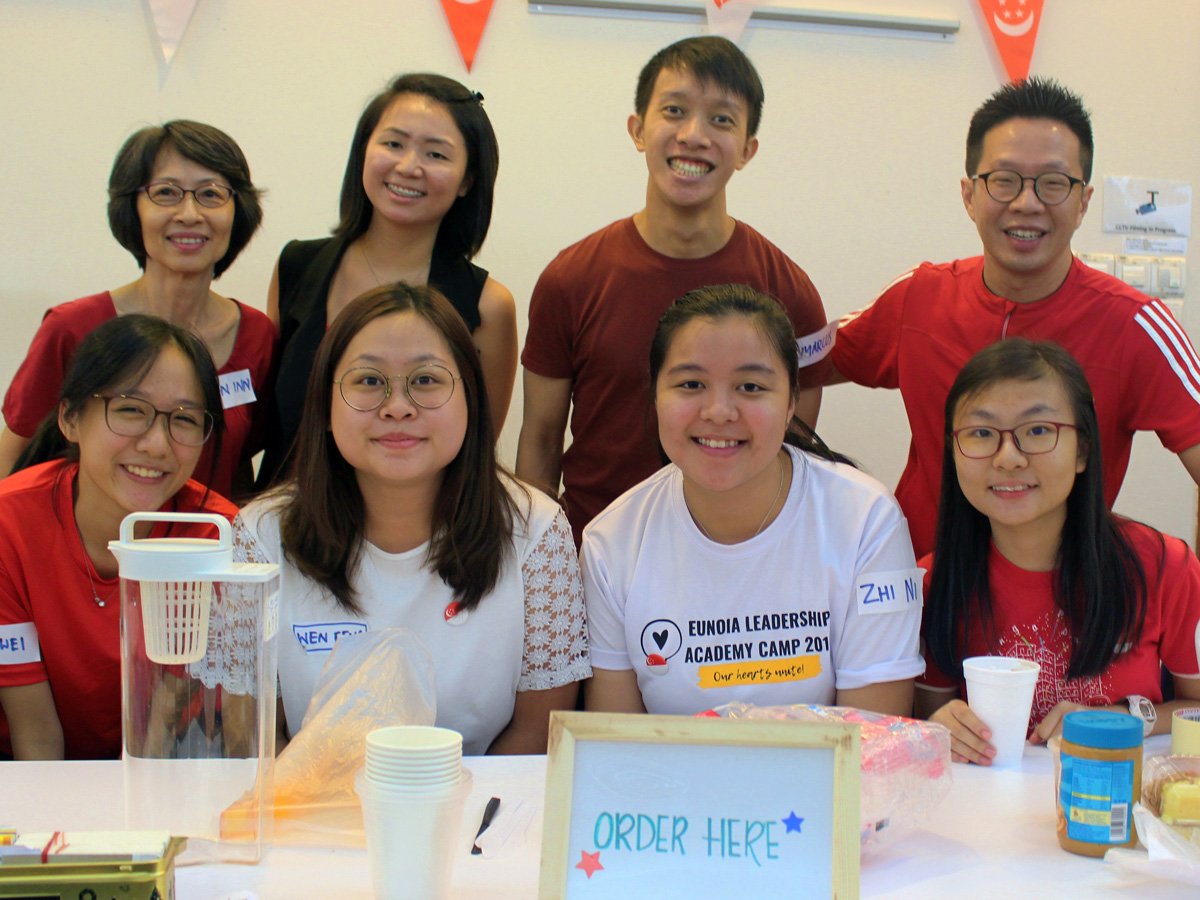
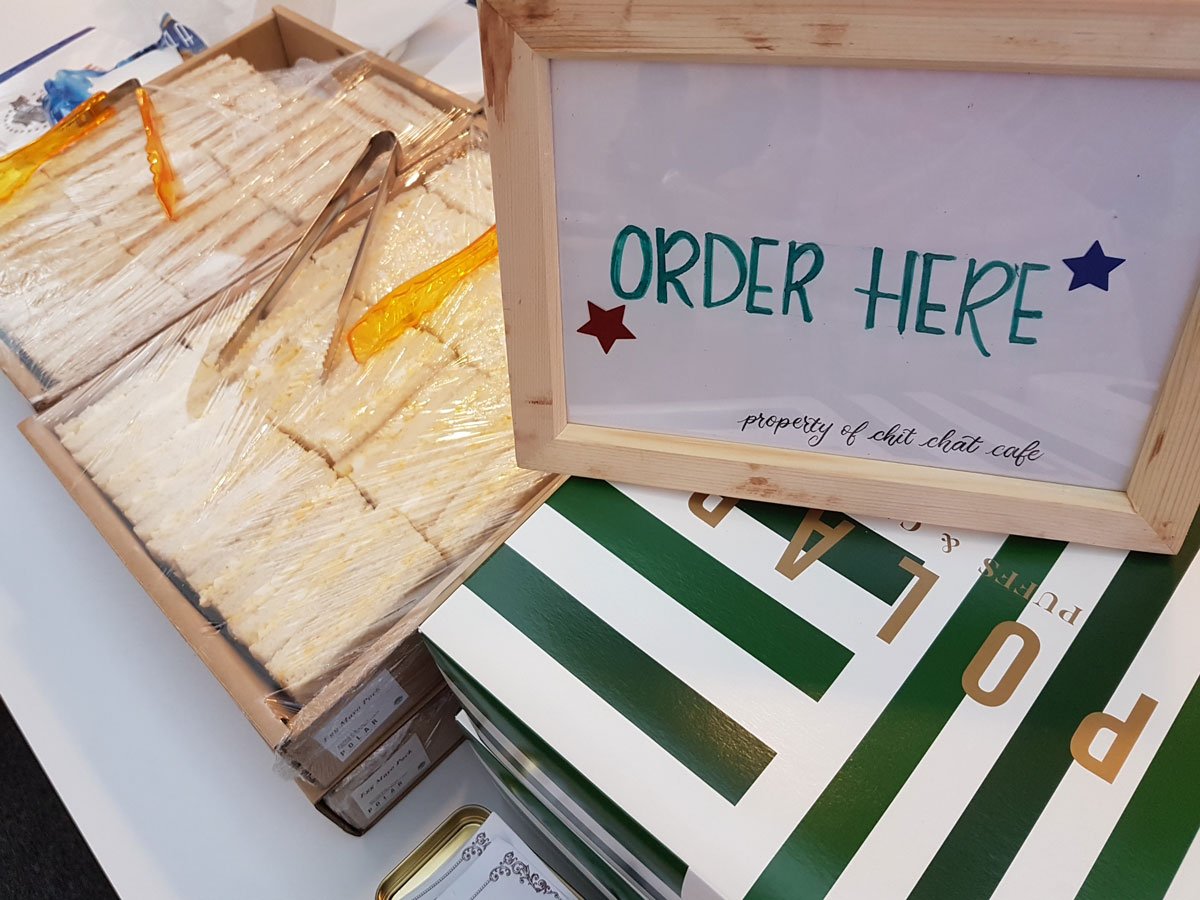

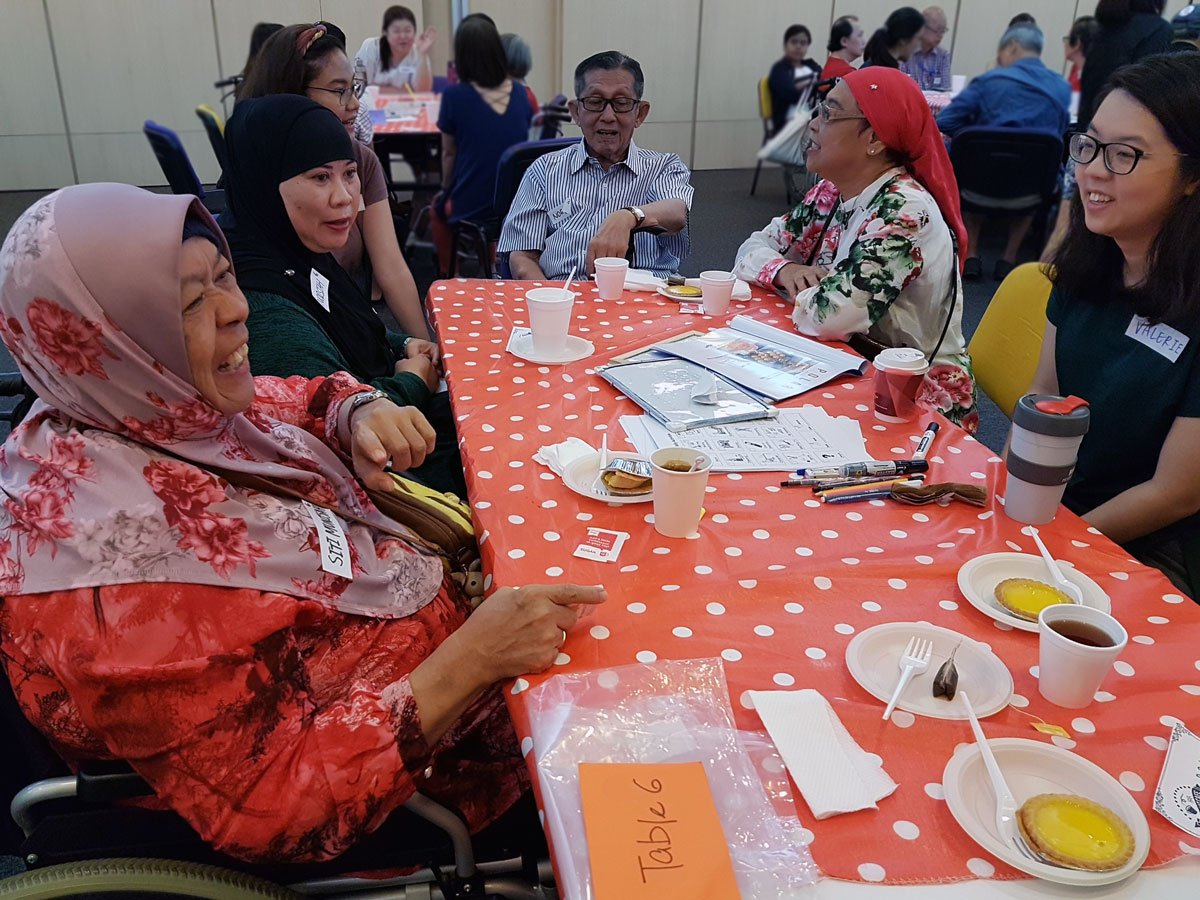
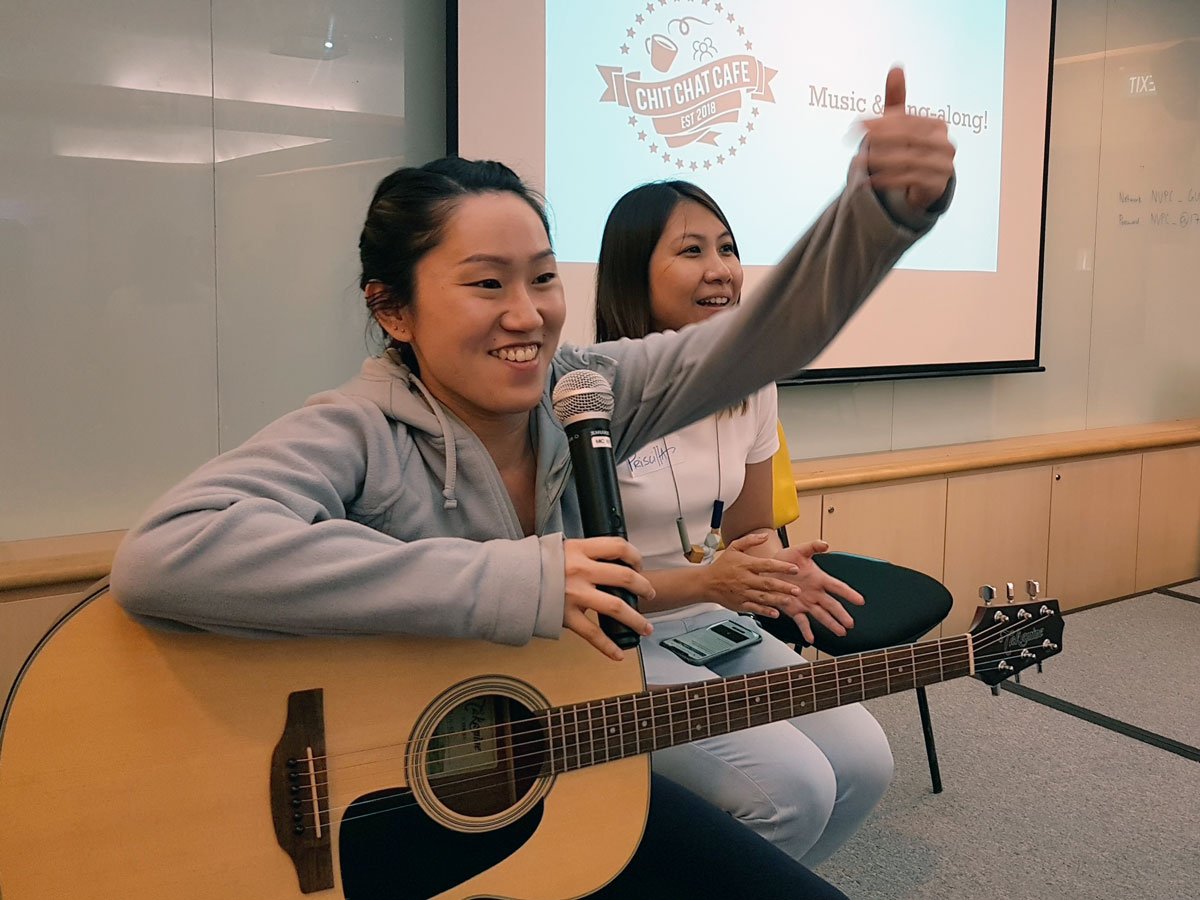
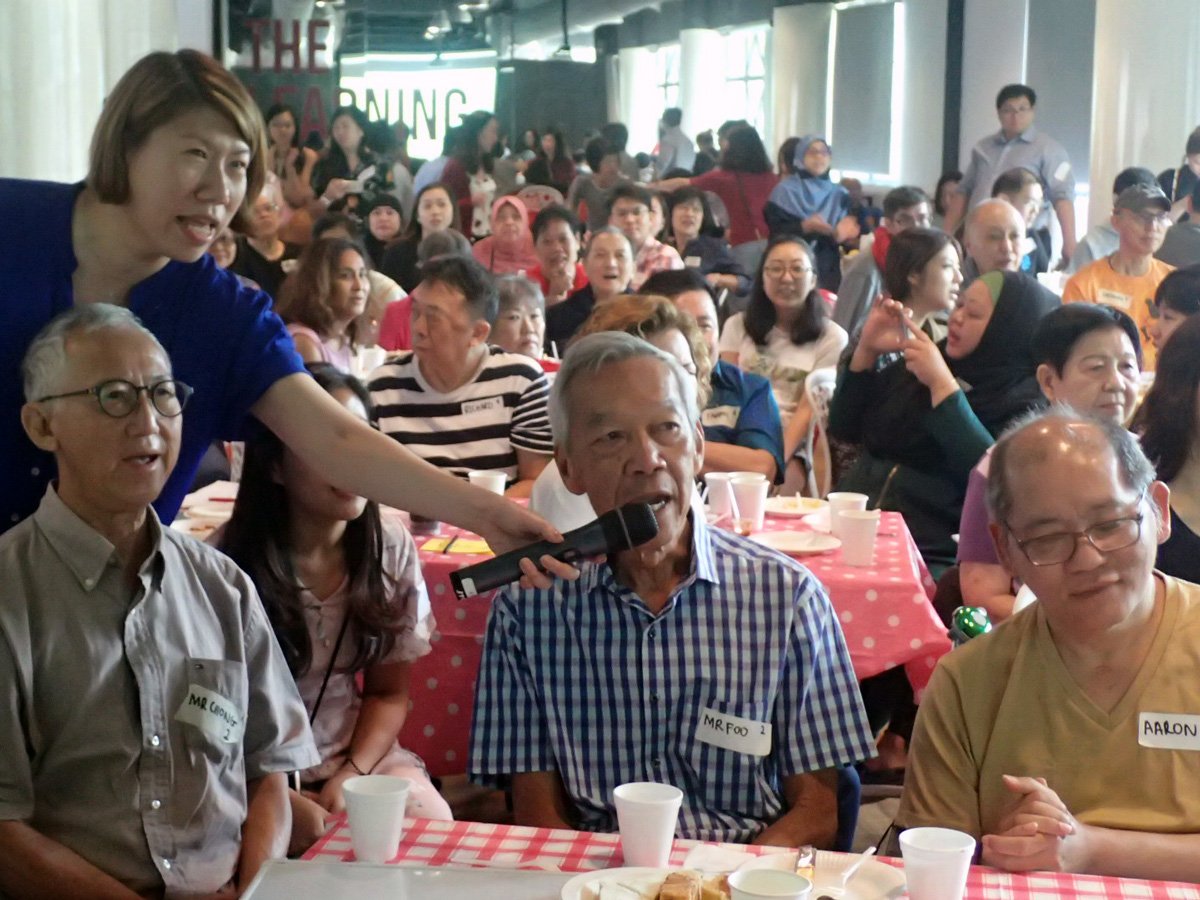
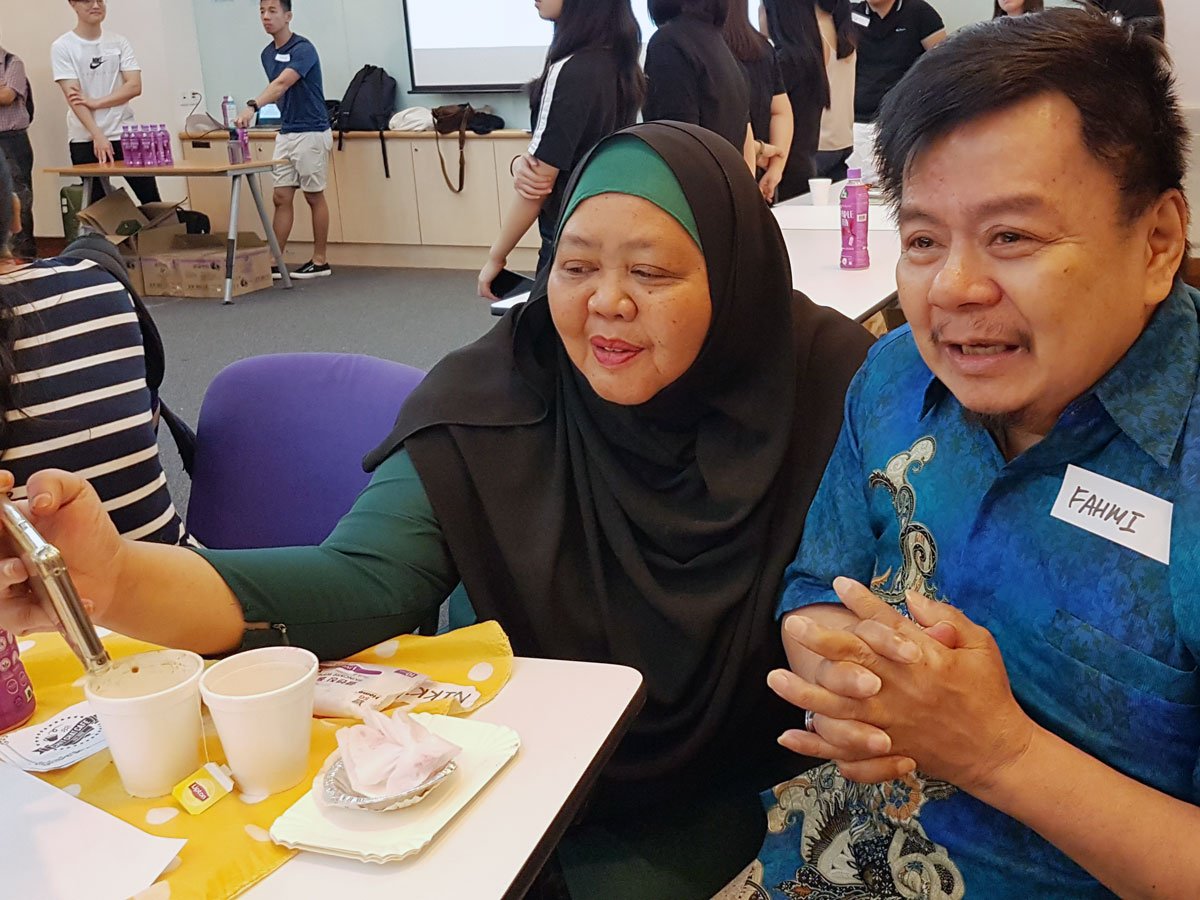
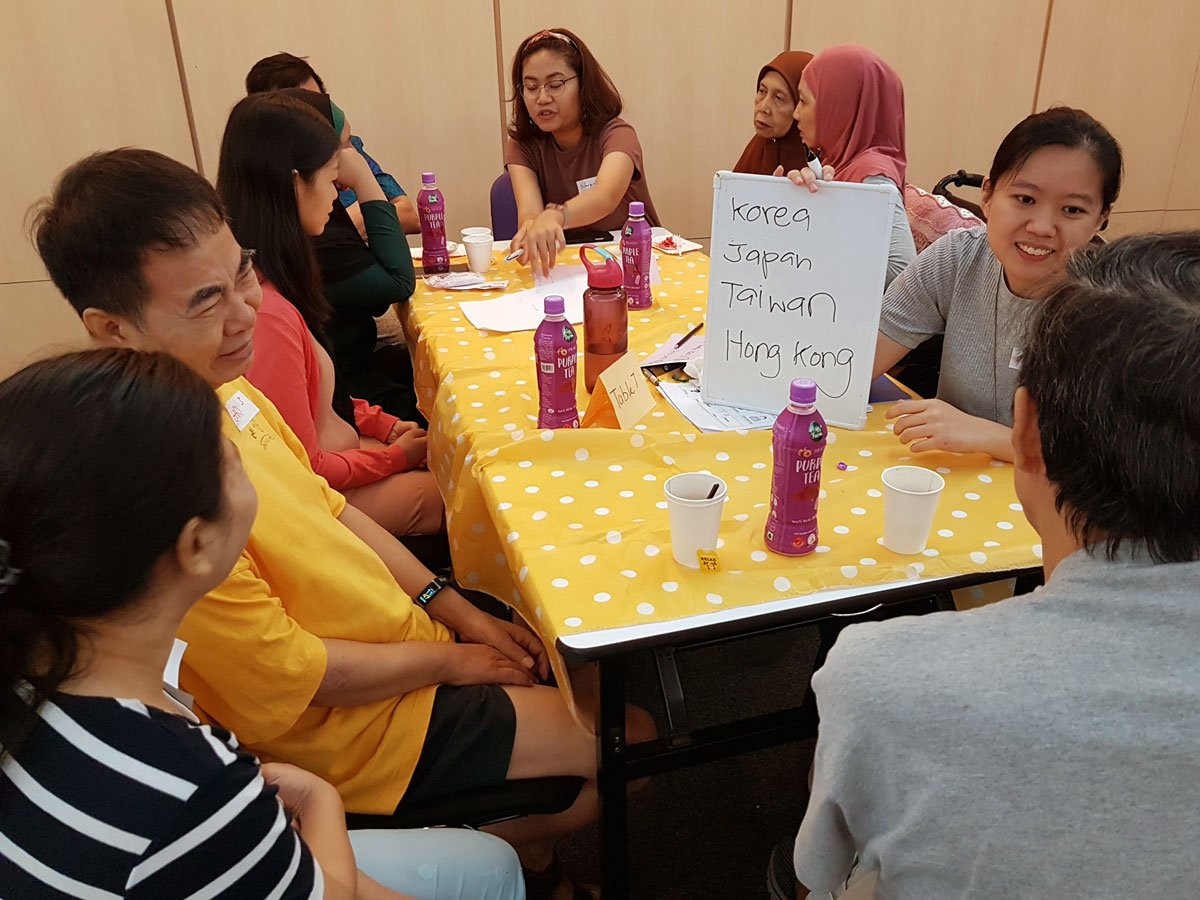
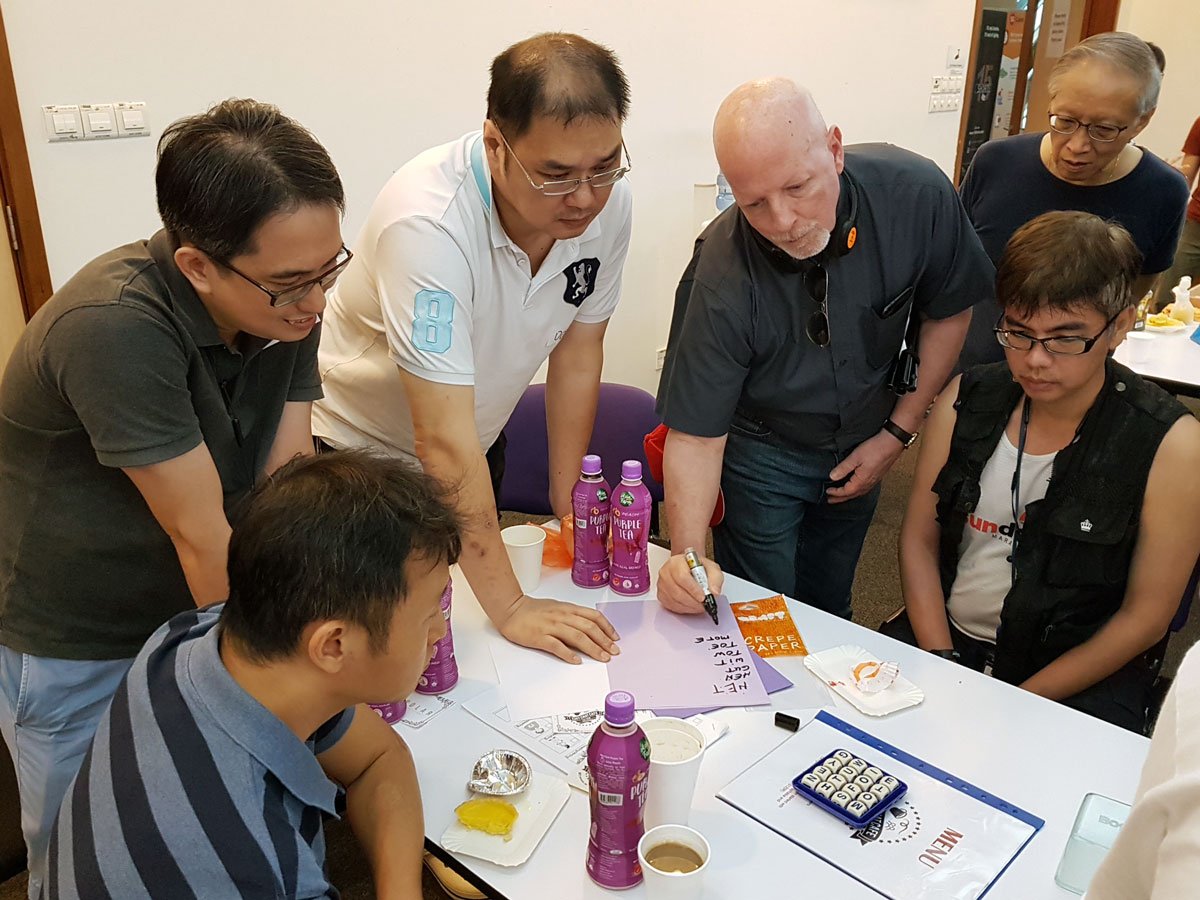
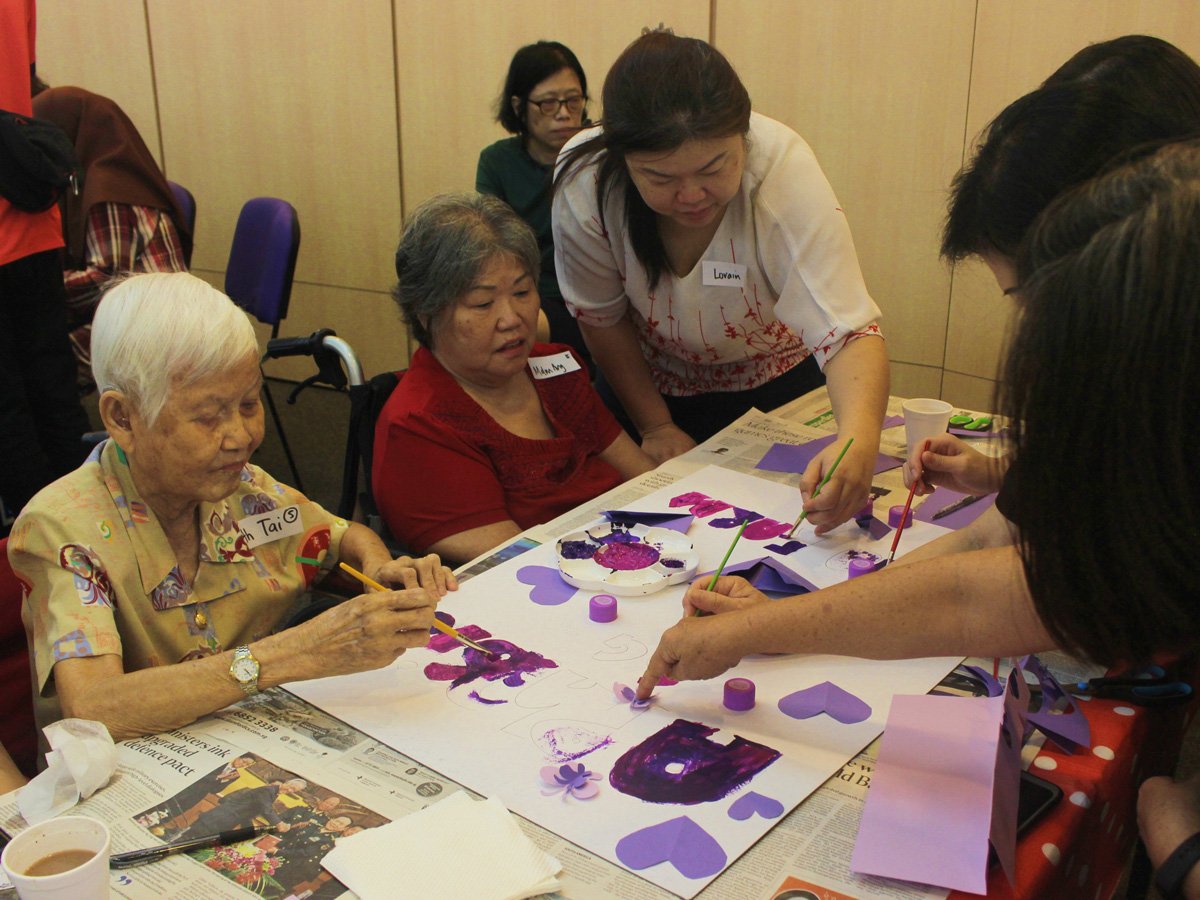
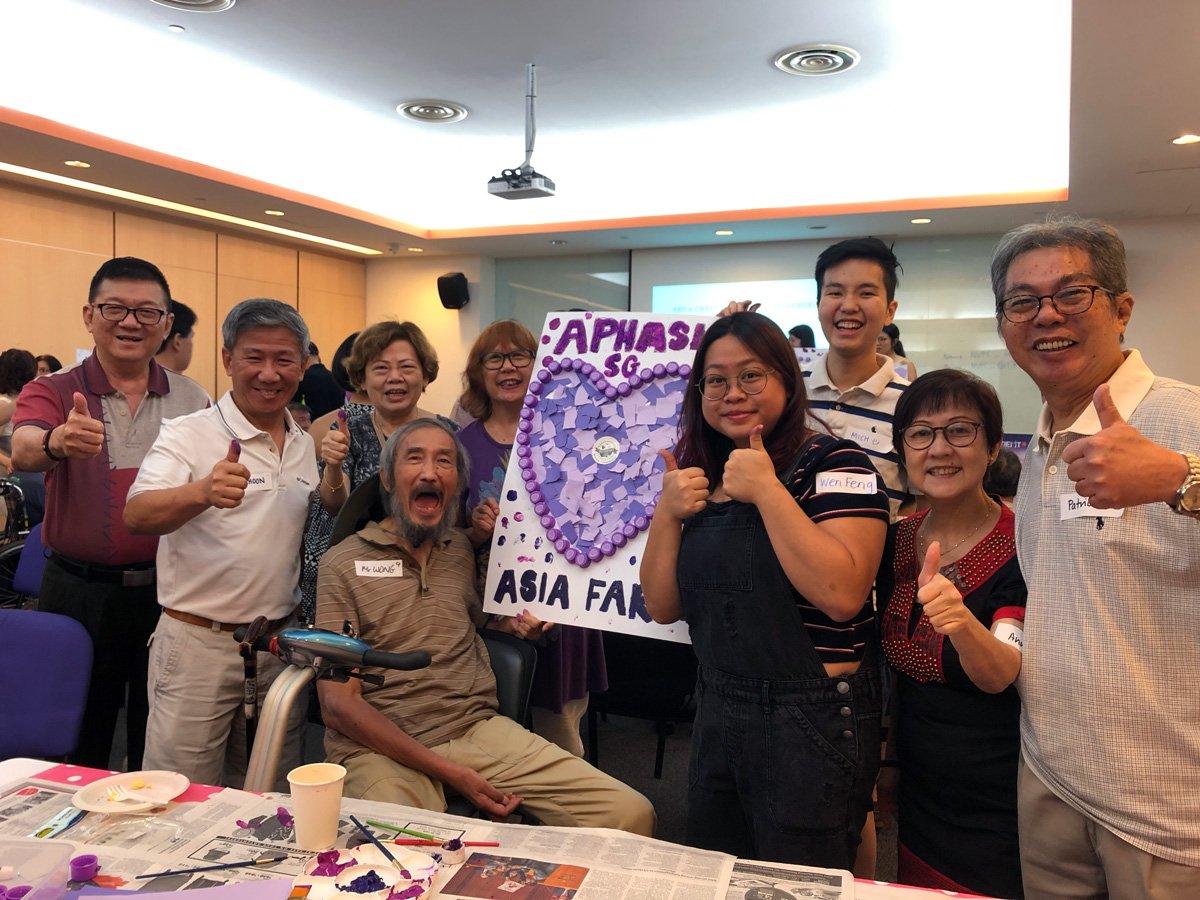
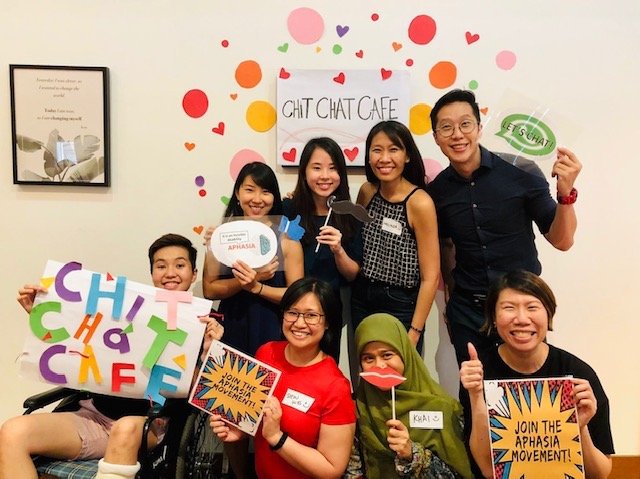

Every 4th Saturday morning of the month, a team of passionate volunteers operate Chit Chat Cafe – a free “pop-up café” for persons with aphasia (PWA) and their caregivers to interact and enjoy a cup of coffee together.
Chit Chat Café is the first and only support network for persons with aphasia (PWA) and their caregivers in Singapore. It was conceived by speech and language therapist (SLT) volunteers who wanted to create a safe space for socially isolated PWA to have meaningful supported conversations while increasing their opportunities to forge new friendships.
At Chit Chat Café, we believe that communication is a basic human right. We believe that by creating an aphasia-friendly café environment where PWA can meet new people every month, they will forge new friendships, regain their confidence, and eventually participate independently in the community.
Caregivers are empowered to form their own support networks as they meet and share strategies with fellow caregivers at the monthly event. We also empower volunteers by encouraging them to have conversations with PWA and caregivers, which promotes greater understanding of the condition.
Aphasia is a communication disorder that occurs after damage or injury to the parts of the brain which controls language. It can be caused by a stroke, traumatic brain injury, brain tumours or infections. People who have aphasia may have difficulty understanding what they hear or read. They may also have issues with speaking and finding the right words to express themselves. However, their intelligence is intact despite the language impairment.
Every person with aphasia experiences it differently. Aphasia can happen to anyone, regardless of age, race, gender or profession.
Studies have documented high levels of depression and social isolation as well as low participation in leisure and social activities among PWA. A research study* in Canada (see reference below) in 2010 also revealed that aphasia has greater negative impact on a person’s quality of life compared to conditions like cancer or Alzheimer’s Disease. Unlike other medical conditions that manifests in physical disabilities, aphasia is an invisible disability. Hence many persons with aphasia suffer in silence with the condition.
Based on known local stroke statistics (over 7,700 patients in 2017), it is estimated that more than 2,500 adults in Singapore are newly diagnosed with this invisible disability called aphasia every year.
*Reference: Lam, J.M.C. & Wodchis, W. P. (2010) The relationship of 60 disease diagnoses and 15 conditions to preference-based health-related quality of life in Ontario hospital-based long-term care residents. Medical Care, 48, 380-3877,741

Do You Know Someone with Aphasia?
Tell them about Chit Chat Café.
Register at tiny.cc/AphasiaSignUp or email aphasiasg@gmail.com for more information.
Follow us @Aphasia_SG on Facebook and @Aphasia.SG on Instagram.
We are here to help!

